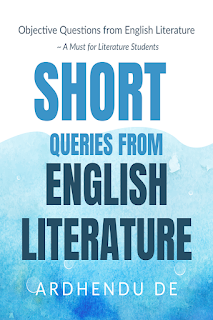Welcome to a literary journey that drives through the intricate collage of human expression—QUERIES. In the upcoming pages, join us on a journey through the ages, dealing with the works of masterful authors who have left an indelible mark on the literary landscape.
Crafting a comprehensive book on English literature within the constraints of a set syllabus is undoubtedly a challenging task. The attempt to encapsulate the vast expanse of literary history, criticism, and interpretation into limited space may seem audacious. In light of these challenges, this book humbly aims to support students aspiring to tackle English literature as an optional subject in the UGC NET/JRF Examinations/SET/UPSC.
Turning our focus to specifics, this book has been meticulously compiled with the utmost care and diligence. It strives to be a premier guide, featuring a multitude of thoughtfully chosen Multiple Choice Questions (MCQs) covering essential aspects of the prescribed course. Additionally, a substantial number of important descriptive questions (with answers) aligning with the precise examination scheme are included, presenting a resource that is both concise and all-encompassing.
I have used Open AI and Google Bard aligning the matters and chapterization of the book. Gratitude also extends to Notion Press and all those who contributed to the creation and publication of this book. I am open to and appreciative of any suggestions for improvement, as each constructive input contributes to the ongoing refinement and excellence of this resource. May this book serve as a guiding beacon for students embarking on the challenging journey of English literature examinations.
Happy reading,
Ardhendu De
Author, “Short Queries from English Literature” ISBN 979-8892332842
Buy The Book From-->
(Note: Offer 💢You can use this coupon to avail 20 % discount at NotionPress: BUYTHEBOOK)


Comments
Post a Comment
Drop any query, suggestion or comment here.